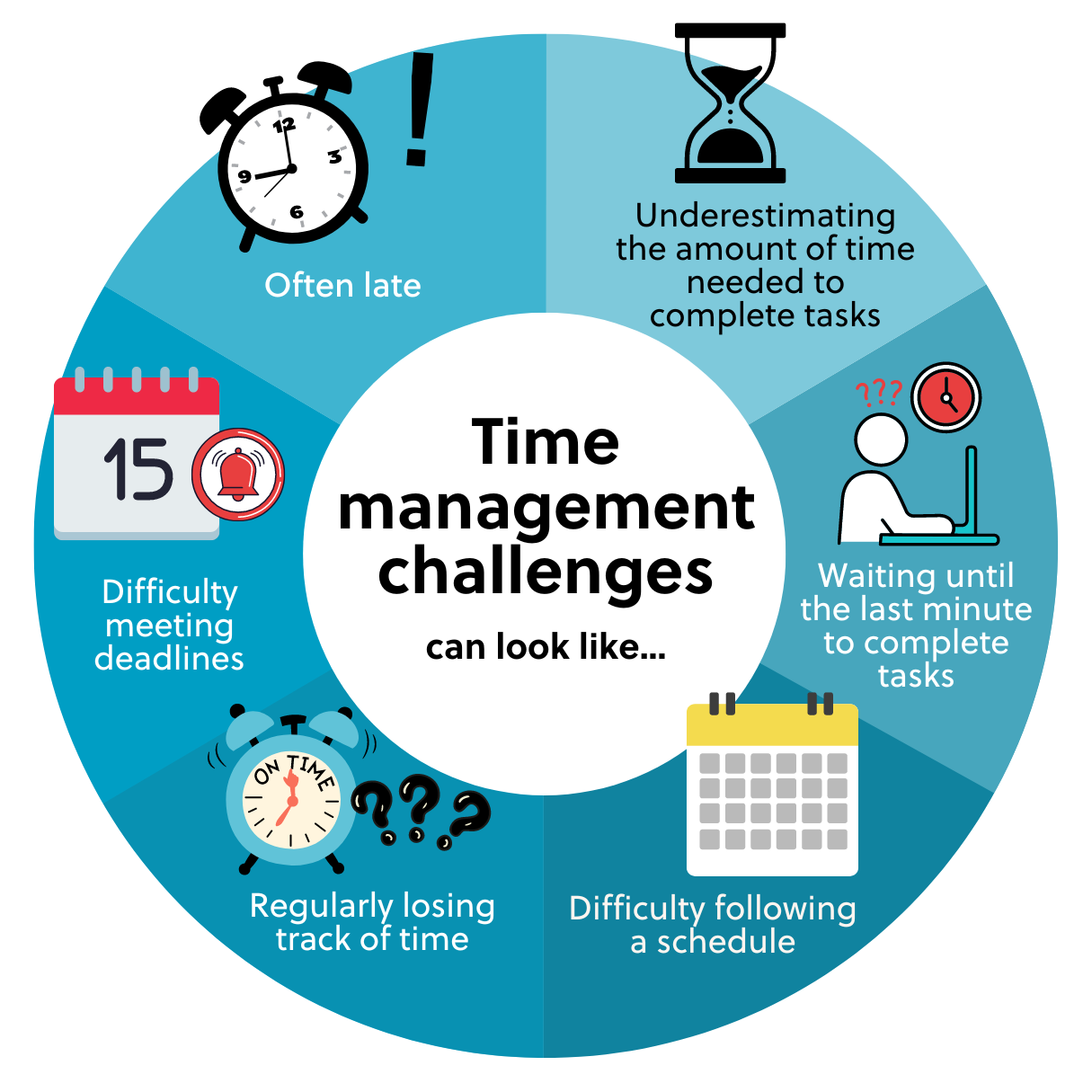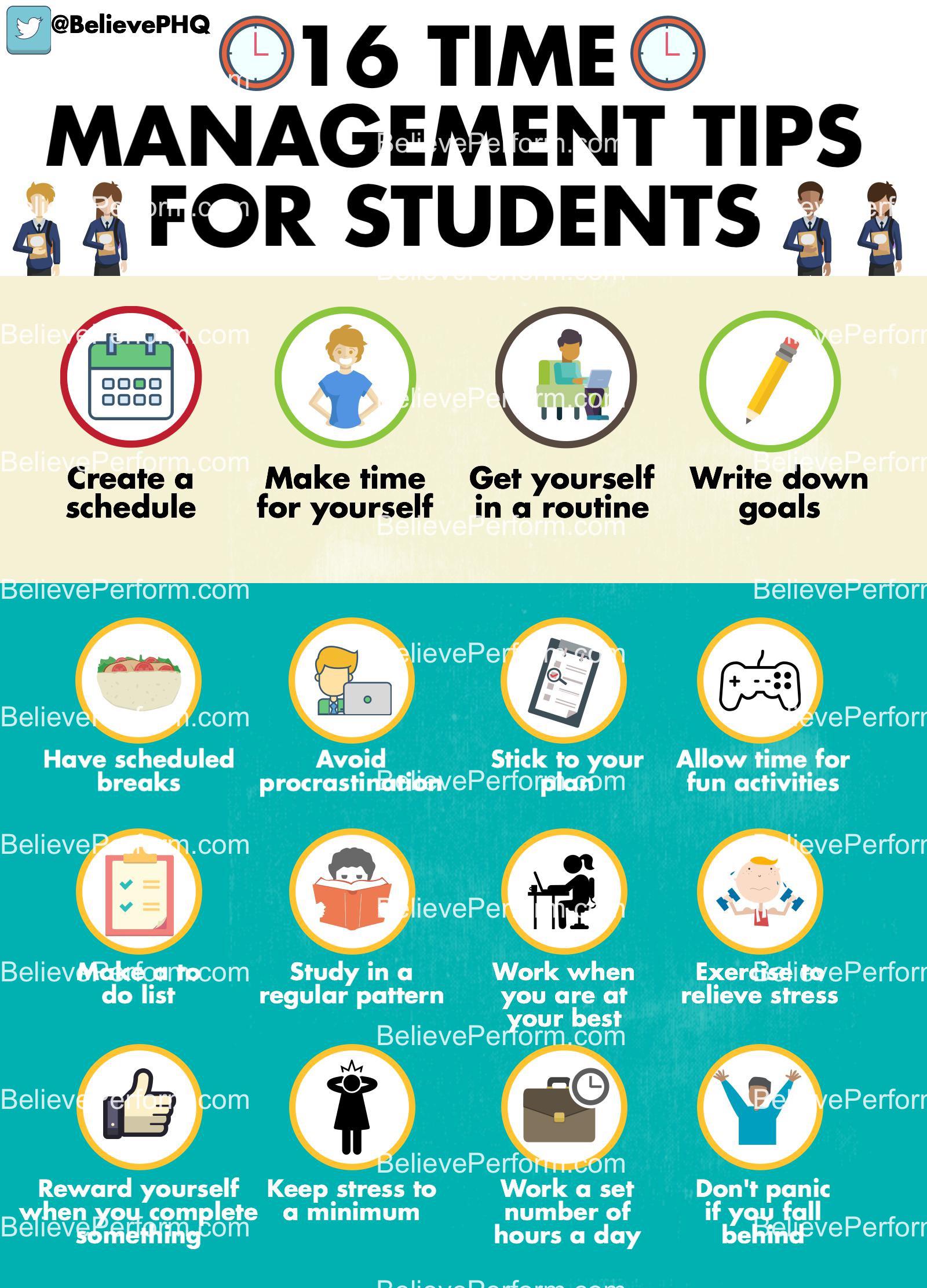Time Management for Students: Master Your Time and Boost Your Productivity
Effective time management is one of the most essential skills students can develop. With the pressure of exams, assignments, extracurricular activities, and social life, it can be overwhelming to juggle everything. However, time management isn’t just about finding more hours in the day; it’s about using the time you have more wisely. Whether you’re in high school or college, mastering this skill will help you not only improve your academic performance but also reduce stress and lead a more balanced life.
In this article, we will explore why time management is critical for students and provide proven strategies, tools, and tips to help you manage your time effectively. If you implement these techniques, you’ll be able to increase your productivity, improve your focus, and accomplish your goals more efficiently.

Why Time Management is Crucial for Students
1. Reduces Stress and Anxiety
When students lack proper time management skills, they often find themselves rushing to meet deadlines or cramming for exams. This not only affects the quality of their work but also leads to unnecessary stress and anxiety. On the other hand, students who manage their time effectively feel in control and are less likely to experience last-minute stress.
2. Enhances Academic Performance
Students who can organize their study schedules, set realistic goals, and prioritize tasks are more likely to perform better academically. With proper time management, you can ensure that you allocate enough time to study for each subject and complete assignments on time, leading to improved grades.
3. Improves Focus and Productivity
By managing your time effectively, you can allocate time for focused work and limit distractions. This allows for deeper concentration and higher-quality work, which ultimately increases productivity.
4. Promotes a Better Work-Life Balance
Good time management isn’t just about schoolwork. It also gives you the flexibility to enjoy hobbies, exercise, socialize with friends, and get enough rest. Achieving a healthy work-life balance is essential for your mental and physical well-being.
Key Time Management Strategies for Students
1. Set Clear Goals
Start by setting specific, measurable, achievable, relevant, and time-bound goals (SMART goals). Whether it’s completing a research paper, preparing for exams, or organizing a group project, setting clear goals will help you stay focused and motivated.
Example of SMART Goals:
- Specific: I want to complete my math assignment on time.
- Measurable: I’ll aim to complete the first three questions by today.
- Achievable: I will work for 30 minutes without any distractions.
- Relevant: Completing this assignment will contribute to my grade.
- Time-bound: I will finish it by 5 PM today.
2. Prioritize Tasks
Understanding what tasks need your attention first is a critical part of time management. Use methods like the Eisenhower Matrix or ABC prioritization to categorize tasks based on their urgency and importance.
- Urgent and Important: Tasks like studying for an upcoming exam.
- Not Urgent but Important: Long-term assignments and projects.
- Urgent but Not Important: Emails or requests from others that can be addressed later.
- Not Urgent and Not Important: Distractions like social media or watching TV.
3. Use a Planner or Digital Calendar
One of the most effective ways to stay organized is by using a planner or digital calendar. By writing down deadlines, exam dates, and study sessions, you can visually see how your time is allocated.
Tools to Try:
– Google Calendar: Ideal for setting reminders for study sessions and appointments.
– Notion: A customizable app for managing both personal tasks and academic assignments.
– Trello: Organize tasks in lists, prioritize deadlines, and set reminders.
4. Break Tasks into Smaller, Manageable Steps
Large projects and assignments can be overwhelming. To make them more manageable, break them down into smaller tasks. For example, if you’re writing a research paper, you can break it down into:
– Research and collect sources
– Write an introduction
– Draft body paragraphs
– Edit and proofread
By dividing tasks into smaller steps, you’ll feel a sense of accomplishment along the way and avoid procrastination.
5. Use the Pomodoro Technique
The Pomodoro Technique is a time management method that involves working in focused intervals, typically 25 minutes, followed by a 5-minute break. After four intervals, take a longer 15-30 minute break. This technique helps maintain focus, reduces mental fatigue, and improves productivity.

6. Avoid Multitasking
Multitasking can actually reduce productivity and increase errors. Instead, focus on one task at a time. Whether you’re studying for an exam or writing an essay, dedicating your full attention to one activity will lead to better results.
7. Minimize Distractions
Distractions are one of the biggest time-wasters for students. Whether it’s social media, phone notifications, or noisy environments, distractions can prevent you from staying on track. Here’s how to minimize them:
– Turn off your phone notifications
– Use apps like Focus@Will for background music that improves focus.
– Find a quiet study space away from distractions.
Time Management Tools for Students
There are numerous apps and tools available that can help students manage their time effectively. Here are some of the most popular:
1. Google Keep
Google Keep allows you to create quick notes and checklists. It integrates seamlessly with other Google services, such as Google Docs and Google Calendar, making it ideal for managing academic tasks.
2. Forest
Forest helps students stay focused by gamifying the process. When you want to focus, you plant a tree. If you leave the app to check social media, the tree dies. Over time, you’ll have a virtual forest of successfully completed focus sessions.
3. Trello
Trello is an excellent project management tool that helps students visually track their tasks, assignments, and deadlines. It’s easy to use and provides great collaboration features for group projects.
4. RescueTime
RescueTime runs in the background of your computer and tracks how you spend your time. It gives you detailed reports on your computer usage, which can help identify areas where you waste time.

Tips for Staying on Track
1. Establish a Routine
Having a daily routine can greatly enhance your time management. Allocate specific times for studying, breaks, meals, and relaxation. A routine minimizes decision fatigue and ensures that you are consistently productive.
2. Don’t Be Afraid to Say No
It’s easy to overcommit to extracurricular activities or social events, but overloading your schedule can make it difficult to manage your academic responsibilities. Learn to say no to things that don’t align with your priorities.
3. Take Care of Your Health
Your physical and mental health is crucial for effective time management. Ensure that you get enough sleep, exercise regularly, and eat healthy meals. A healthy body and mind improve focus, memory, and overall productivity.
4. Stay Flexible
Life can be unpredictable. While it’s important to stick to your plan, it’s also essential to remain flexible. If something unexpected comes up, adjust your schedule accordingly and stay calm.
Frequently Asked Questions (FAQs)
1. How do I manage my time with a busy schedule?
The key is to prioritize tasks, break them into smaller chunks, and use time management tools to stay organized. Don’t forget to schedule time for breaks and self-care.
2. What are the best time management apps for students?
Apps like Trello, Google Keep, and Forest are great for students. They help with task management, focus, and scheduling.
3. How do I stay motivated to stick to my time management plan?
Set small, achievable goals and reward yourself when you complete them. This helps maintain motivation and keeps you on track.
4. Is it normal to feel overwhelmed with time management?
Yes, many students struggle with managing their time effectively, especially at first. The important thing is to be patient with yourself and consistently practice good time management habits.
Conclusion
Mastering time management for students is essential for academic success and personal well-being. By implementing strategies such as setting clear goals, prioritizing tasks, using the right tools, and minimizing distractions, students can manage their time more effectively, reduce stress, and improve productivity.
Start small by incorporating a few of these strategies into your daily routine. Over time, you’ll find that good time management becomes second nature, helping you succeed both academically and in life. With the right approach, you can take control of your time and achieve your goals with ease.

